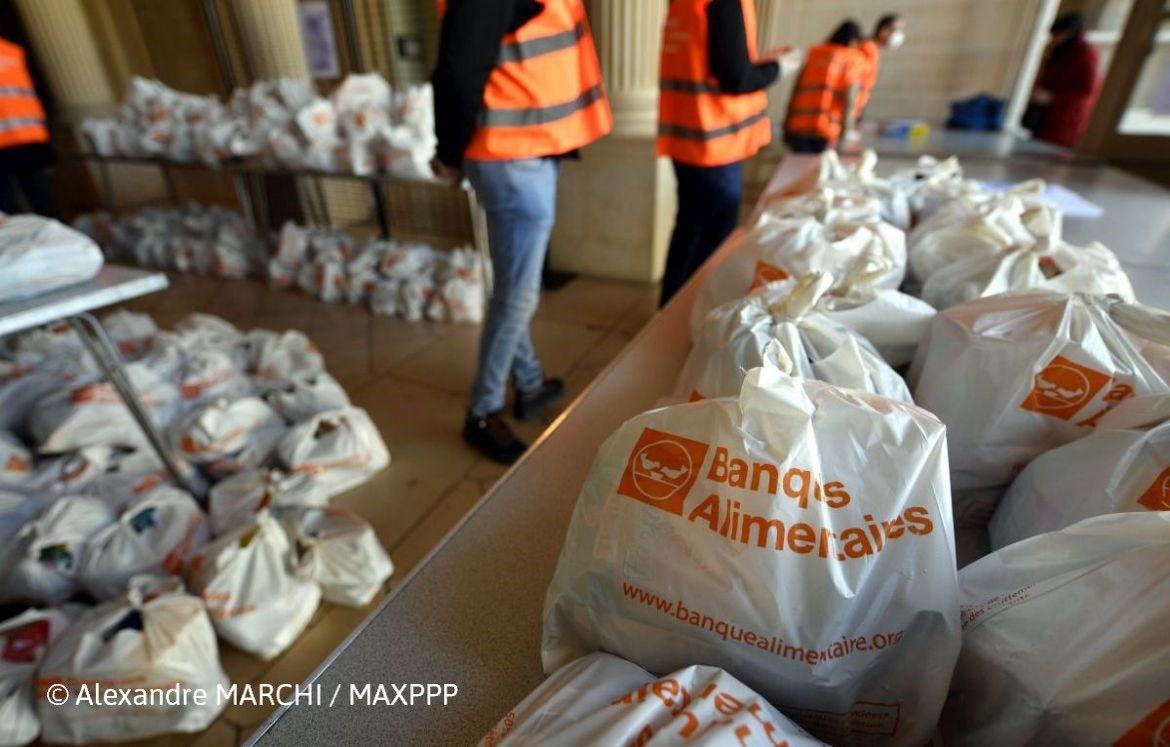The coronavirus epidemic has thrown many people into insecurity overnight. Humanitarian associations in France as in other countries are on the bridge, but they must innovate in the face of an unprecedented situation that is upsetting traditional systems.
All humanitarian associations are seeing people who are coming for the first time asking for help: families affected by partial unemployment; employees working in catering, tourism or events who find themselves without activity; temporary workers who can no longer find assignments; students who have lost their jobs… All of them are forced to resort to food aid.
Behind the associations that distribute food aid in France, there is the Food Banks (Banques Alimentaires), which collect food during the “pick up”: in short, unsold items from large and medium-sized stores are recovered, then the Food Bank distributes this collection between charities which in turn redistribute products to the poor.
“Our role is not to distribute these food products directly,” explains Gérard Bouchot, President of the Banque Alimentaire de Bourgogne. “But, at the start of the COVID-19 crisis, certain associations – deprived of their elderly volunteers and vulnerable to the virus – suspended their distribution activity for some time. This is why we had to distribute food directly to Dijon reception centres and shelters.”
Today, the situation is starting to get stabilized. However, due to the arrival of new beneficiaries, the Food Bank distributes around 10 tons of additional food per week. If for the moment there is no problem of supply, “the wholesaler” of charities is already starting to do the accounts and hopes that the 39 million euros promised by the State for food aid will arrive soon.
“In the meantime, we are takers of financial donations of course, as well as food donations from industries and supermarkets. We are particularly interested in products for babies: formula, small jars …“, adds Gérard Bouchot.
Read the original article here (in French).




